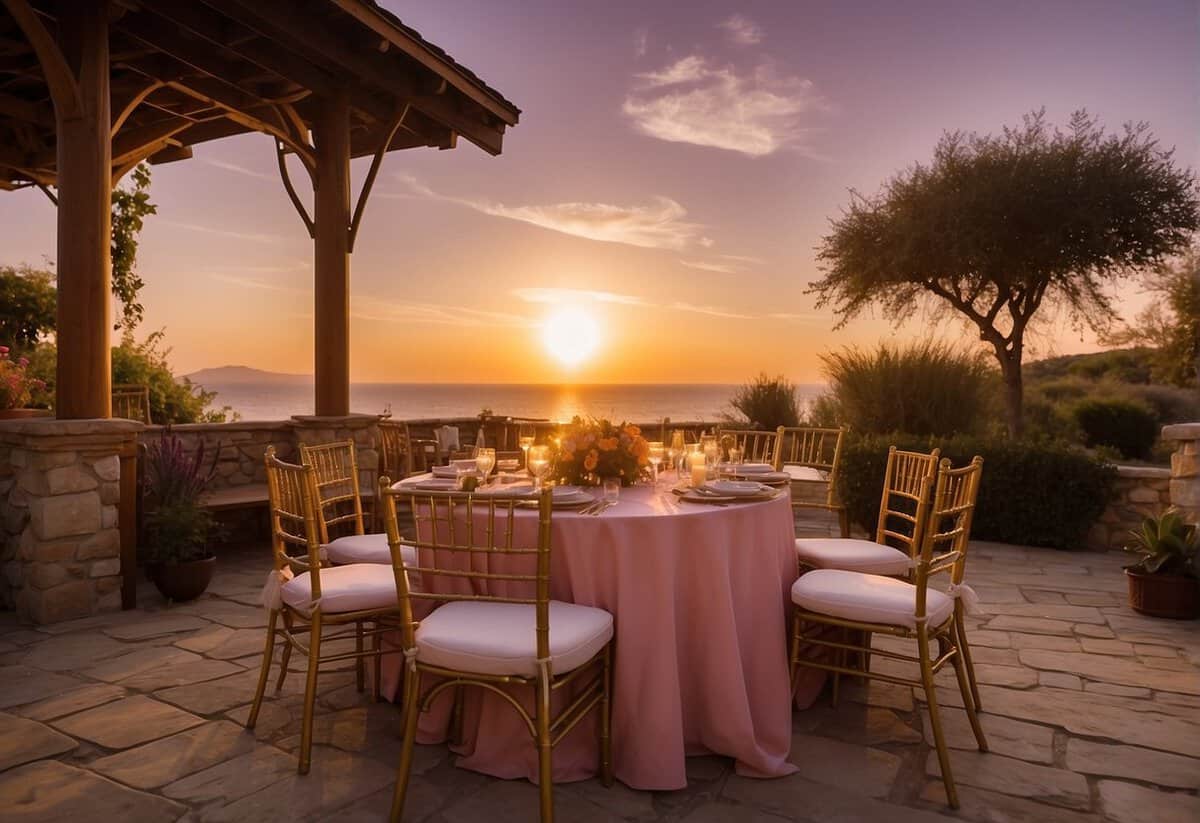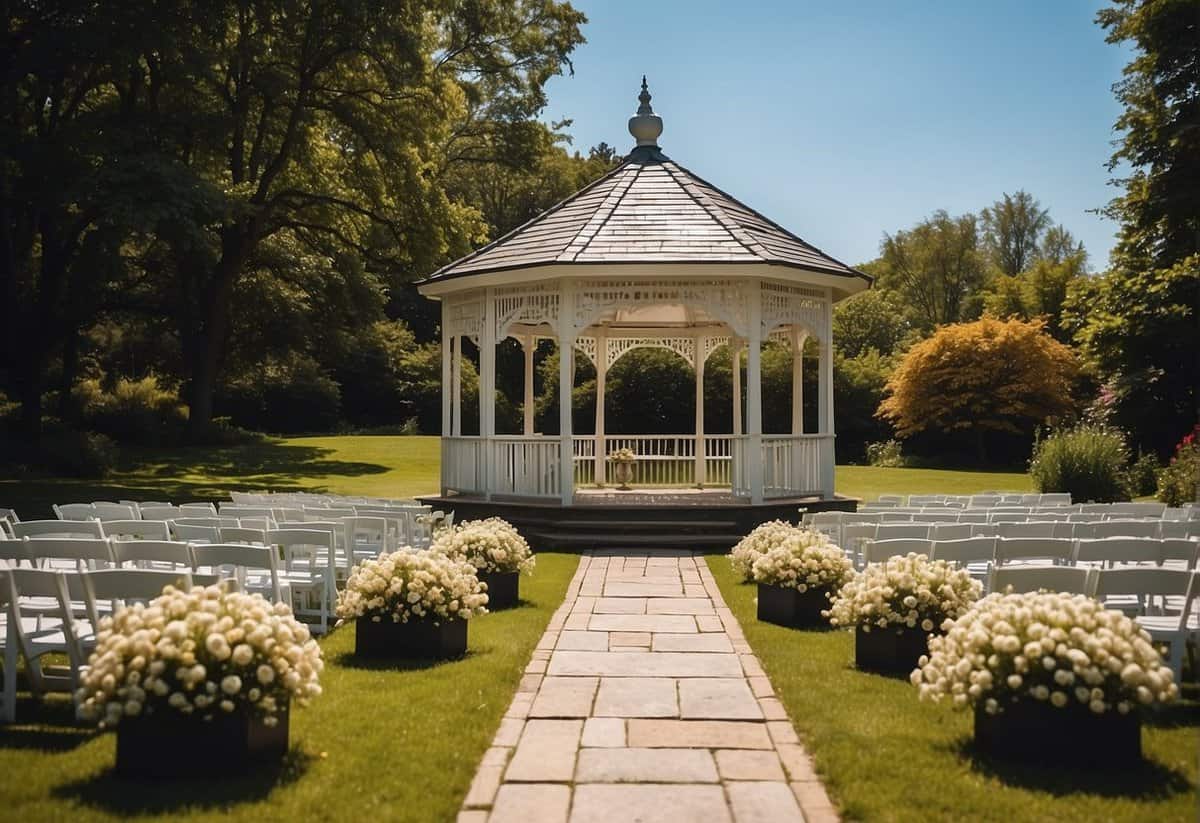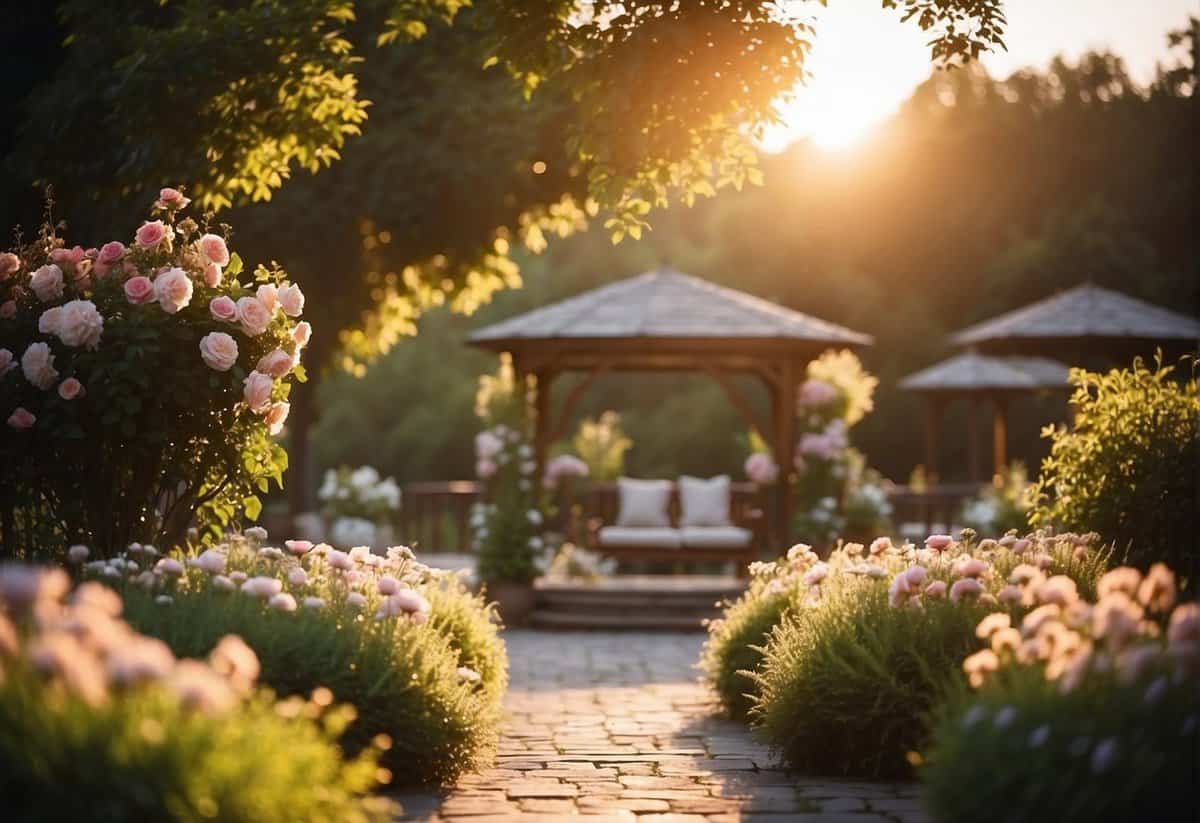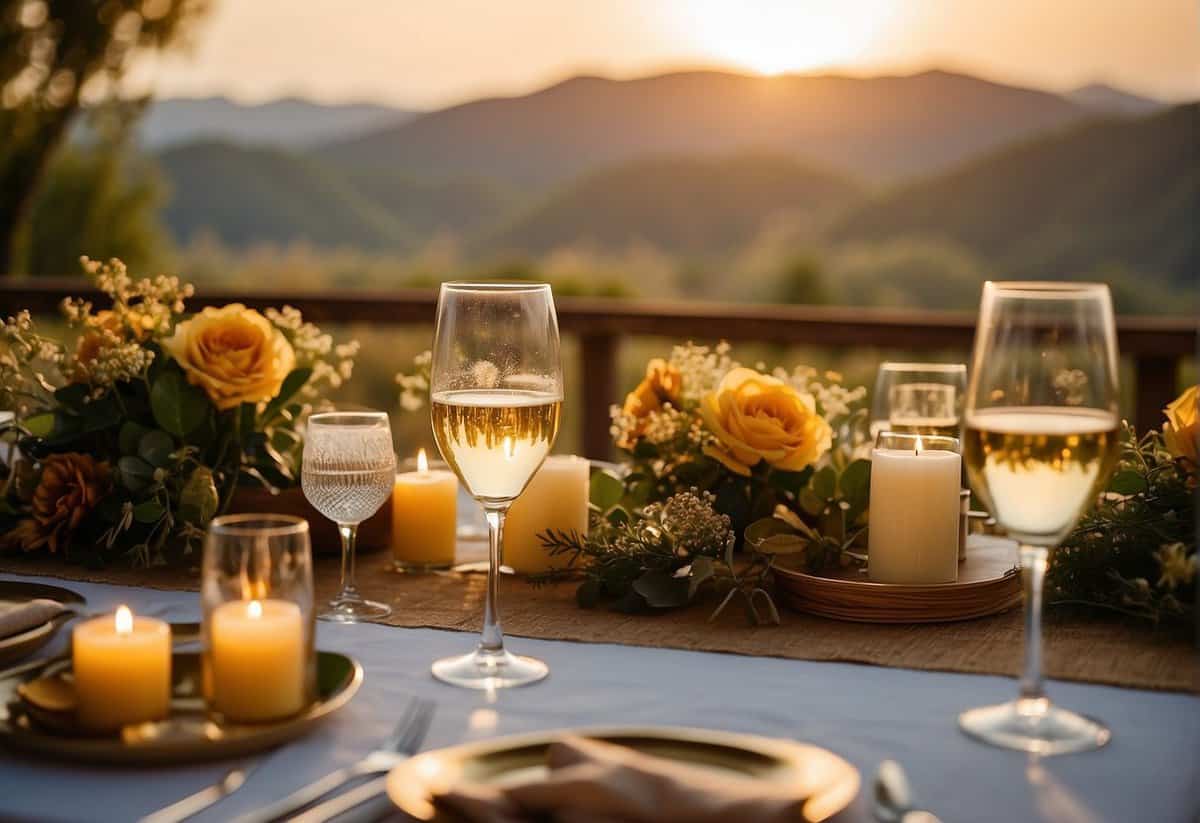What is the Best Time of Day to Get Married? Understanding Key Factors
Deciding on the perfect time of day to tie the knot can influence the atmosphere, photography, and schedule of your special day. While the most popular times to get married are in the early to mid-afternoon, such as 1 pm or 2 pm, it ultimately depends on the type of wedding you envision and what works best for you and your guests. Early afternoon weddings provide ample time for evening receptions and perhaps a sunset photo session, whereas evening ceremonies offer a more formal vibe with the potential for a dramatic nighttime celebration.

There’s also the consideration of the season and how it affects the day’s light and weather, which is pivotal for outdoor ceremonies. The best months for a wedding, generally seen as June, September, and October, offer mild weather and more natural light. However, picking a date that resonates with you personally can be more significant than following trends or traditions. Whether you’re planning a grand event or a more intimate gathering, choosing a time that complements your vision for the day and addresses practical aspects like lighting and comfort is key.
Key Takeaways
- The early to mid-afternoon is traditionally popular for wedding ceremonies.
- Seasonal weather and light should guide the timing of your ceremony.
- Personal preference plays a critical role in deciding your wedding time.
Choosing Your Wedding Date

When you’re planning your wedding, the date you choose can have a significant impact on both the atmosphere of your special day and the practicalities of your event. This section will guide you through the importance of choosing specific dates and how seasonal variations can affect your wedding plans.
Significance of Specific Dates
Choosing a specific date for your wedding can be about more than just finding a day that suits you and your partner. Some dates hold cultural or personal significance that can add a layer of meaning to your celebration. For instance, selecting a date with repeating numbers, such as July 7th (7/7) or February 22nd (2/22), can be appealing for their patterns and are sometimes considered lucky wedding dates. Conversely, it’s wise to be aware of dates that might conflict with major events or holidays, which could lead to potential scheduling conflicts or increased costs.
- Holiday Weekends: While they offer an extended time for celebration, they can also lead to higher travel and accommodation prices for your guests.
- Specific Months: Months like June, September, and October are particularly popular wedding months, due to their typically mild weather and natural beauty.
Seasonal Considerations
Your preferred wedding season will not only set the tone for your day but also play a key role in your guest’s comfort and the services available.
- Wedding Season: May through October, known for its warmer weather, is generally seen as the peak wedding season. Celebrating during this time means you’ll have more daylight hours but also face more competition for venues and vendors.
- Off-Season: Opting for a date in the off-season, which typically encompasses November through April, can be a budget-friendly choice. Providers may offer discounts during these months, and you’ll likely encounter fewer scheduling conflicts.
During the planning process, you should also consider:
- Wedding dates to avoid: Be sure to check for any local events that could interfere with travel and lodging.
- Indeed, weather patterns: Think about how different seasons affect your chosen location’s climate; you don’t want your guests to be too hot, cold, or caught in the rain.
By being mindful of these considerations, you’ll set a firm foundation for the memorable day that awaits you.
Wedding Planning and Budget

When it comes to planning your big day, understanding how the wedding date affects your budget is crucial. From selecting your venue to choosing vendors, the time of year, day of the week, and even the specific hour can significantly impact the cost.
Cost-Saving Tips for Wedding Dates
To get the most out of your wedding budget, consider a weekday wedding to save money. Weekdays are often in less demand, leading to potential discounts from vendors and venues. Embrace the off-season months which vary by location but typically include times outside of the peak wedding season. This period outside of peak times not only lowers costs but also allows for more vendor options as they are less likely to be booked up.
- Off-Peak Discounts: Venues and some vendors may offer lower rates for weddings held in the off-season or on weekdays.
- Negotiation Leverage: Lower demand can increase your negotiation power with vendors.
Working with Vendors and Venues
When you’re ready to book vendors and a venue, arm yourself with a detailed wedding planning checklist to ensure no detail is overlooked. This list should cover all services you need and potentially highlight areas where you can combine services for better rates. Always read contracts carefully and understand what is included in the pricing, such as setup and cleanup. If your budget allows, consider a wedding planner who can often secure discounts and streamline the process.
- Vendor Packages: Look for vendors who offer packages that can bundle services like catering and rentals.
- Communicate Your Budget: Be upfront about your budgetary constraints, as some venues and vendors can tailor their services to meet your financial limits.
Remember, your wedding day is about you and your partner, so choose what feels true to you while being mindful of your budget.
Timing the Big Day

Selecting the best time of day for your wedding directly impacts the atmosphere, logistics, and overall experience. Your ceremony and reception timings set the pace for your special celebration, while considering your guests ensures everyone involved can enjoy your big day to the fullest.
Ceremony and Reception Timing
Ceremony Time: Traditionally, weddings in the afternoon such as at 1 or 2 pm are popular, allowing time for morning preparations and an evening reception. However, the timing can shift to accommodate venue availability, lighting for photography, and even spiritual or cultural significance.
- Morning: A ceremony around 10 am followed by a brunch reception.
- Afternoon: A common choice is a ceremony between 1-3 pm.
- Evening: For a twilight feel, a ceremony around 5-6 pm is ideal.
Wedding Reception: The duration between your ceremony and reception can vary. Consider a wedding timeline that allows for photos, a cocktail hour, or a break before the celebration continues.
- Same location: A shorter gap is easier since travel time is eliminated.
- Different locations: Plan for travel time and a reliable way to move guests if required.
Guest Considerations
Attendance: Your chosen time may affect your guests’ ability to attend. Weekday weddings might require guests to take time off work, while a weekend or holiday wedding may lead to better attendance and allow out-of-town guests to make travel arrangements.
Vacation Time and Time Off:
- Plan well in advance if your wedding time potentially overlaps with popular vacation periods.
- Send out save-the-dates early to ensure your guests can schedule time off.
Remember, whether you envision a sunlit morning ceremony or a starry nighttime affair, your comfort and the enjoyment of your guests are the ultimate guideposts for planning the timing of your big day.
Optimal Seasons and Monthly Insights

When choosing a wedding date, you’ll want to consider the season’s unique attributes, from weather patterns to venue availability and thematic possibilities. Each season offers distinct advantages that can align with your vision for the perfect day.
Summer and Winter Weddings
Summer weddings, particularly in June, July, and August, are popular due to the warm weather and longer days. If you’re dreaming of an outdoor ceremony with lush landscapes and vibrant sunsets, summer might be your ideal season. However, keep in mind that venues and vendors may be in higher demand, so early booking is crucial. Meanwhile, winter offers its own charm. Despite the colder weather, a December or January wedding can be magical with snow-covered scenes, creating a “white wedding” theme. Plus, venues might be less expensive and more available in winter, except around the holidays.
Advantages of Summer Weddings:
- Longer days, more daylight for photos
- Ideal for outdoor ceremonies
- Vibrant natural settings
Winter Wedding Considerations:
- Possible off-season discounts
- Snowy landscapes for unique backdrops
- Festive holiday atmosphere in December
Spring and Fall Celebrations
Spring and fall weddings offer a sweet spot with mild weather and nature’s beauty at its peak. September and October are particularly coveted for fall weddings due to the comfortable temperatures and fall foliage, providing a stunning backdrop for photos. For spring, blooming flowers and greenery can add natural decor to your venue. An outdoor ceremony is typically pleasant in these seasons, but remember to have a backup plan as weather can be unpredictable. Venues may start to book up quickly for these peak months, so plan accordingly.
Spring Wedding Highlights:
- Natural floral landscapes
- Generally milder weather
- Fresh and renewal themes
Fall Wedding Benefits:
- Gorgeous fall foliage
- Perfect temperature for outdoor ceremonies
- Popular months: September and October
Frequently Asked Questions

Choosing the best time for your wedding ceremony can be pivotal in ensuring that your special day aligns with your preferences for lighting, ambiance, and vibes. Let’s explore some common inquiries to guide your planning process.
What are the most popular times for wedding ceremonies to begin?
The most popular times for wedding ceremonies often align with late afternoon, typically around 4:00 p.m. to 5:00 p.m. This time frame allows for ample lighting for photographs and a smooth transition into evening receptions.
Is there a specific hour that is considered luckier for wedding nuptials?
Although there’s no universal hour deemed luckiest, some couples choose dates with strong numerical patterns, believing they bring good fortune, such as 11/11/20 or 2/22/22. The exact time could be set to mirror these patterns where possible.
When is the ideal time to have an outdoor wedding ceremony?
If you’re planning an outdoor ceremony, consider a start time of late afternoon, typically between 3:00 p.m. and 5:00 p.m. This takes advantage of the ‘golden hour‘ for beautiful lighting and usually more comfortable temperatures.
What time do most weddings typically conclude if they start in the morning?
Weddings that start in the morning may conclude by mid-afternoon. A sample timeline from A Practical Wedding suggests that preparations begin at 9:00 a.m., with the festivities often wrapping up post-lunch around 3:00 p.m.
Are there preferred time slots for wedding ceremonies in the fall season?
In the fall, when the days are shorter, ceremonies often begin earlier, around 2:30 p.m. to 3:30 p.m. This allows you to maximize the daylight for your ceremony and photos, as well as enjoy the warmth before the evening cools.
What is the recommended start time for a wedding on a Saturday?
For a Saturday wedding, many couples opt for a late afternoon or early evening start, such as 4:00 p.m. or 5:00 p.m. This allows guests to have the morning free and sets the stage for an evening of celebration.

